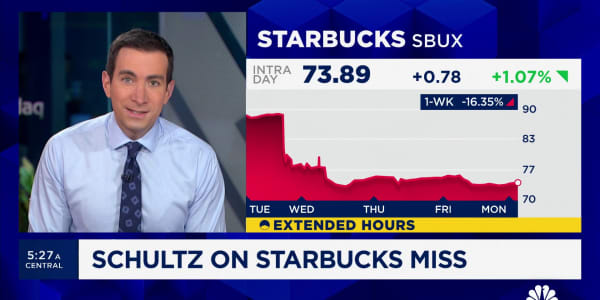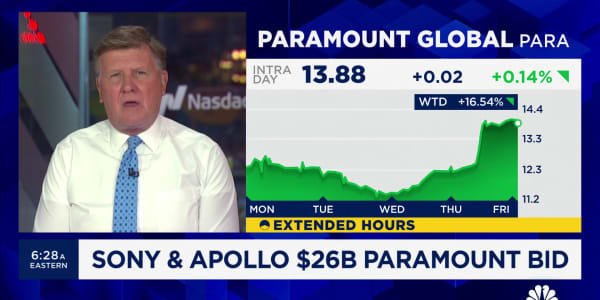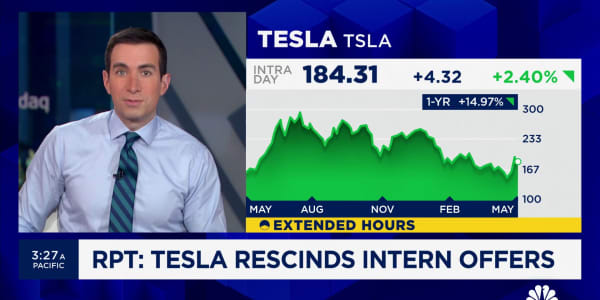Notes:
The run-up to Black Friday is nail-biting time for retailers, and this year many chains face a problem they haven't had in a while: excess inventories. Many chains that had reduced space during and after the recession changed course recently as the economy perked up. Now a 4 percent increase in square footage—space that must be filled with goods—clashes with projections for a holiday sales increase of only 2.9 percent. Department stores and luxury retailers may be hit hardest, since they ordered items earlier in the year when projections were brighter. Another concern: less than 48 percent of the working-age population is employed, the lowest figure since women entered the workforce in large numbers two generations ago.
Quote:
"There's a whole ton of people that we believe are going to be inventory heavy."—Craig Johnson, president of Customer Growth Partners.
Why every college kid should have a credit card
Notes:
Any business that deals with ordinary consumers must wrestle with the question of how lenient to be in extending credit. Generally, it's assumed that young people are worse than older ones in paying bills, either because they have little money or are just careless. But it looks like businesses that cut the young off from credit could be missing some sales unnecessarily. A study by the Federal Reserve Bank of Richmond and Arizona State University finds that people who get their first credit card before age 21 are substantially less likely to fall seriously behind than people who get their first card later. Also, a cardholder aged 40 to 44 is 12 percent more likely to have a serious default than a 19-year-old. The study excluded young cardholders who had parents as co-signers.
Quote:
"[There is] no compelling evidence that young borrowers are bad borrowers."—The study's authors
The tape of two social networks
Notes:
Shares of LinkedIn were hammered today after the company forecast disappointing revenue for the fourth quarter. With shares trading around 158 times forward earnings, versus 70 times for Facebook and 23 for Google, a little volatility shouldn't be a surprise. And it's been afforded a hefty valuation because LinkedIn is far ahead of competitors in its Web recruitment niche.
Facebook, meanwhile, once again beat earnings estimates—by six cents—and impressed on what has become the most important item of all. It continued to grow its percentage of ad revenue coming from mobile—up from 41 percent in the second quarter to 49 percent in the third quarter.
Quotes:
"[LinkedIn is] going to radically change recruitment over the next decade and that's why you've got to look beyond this [fourth-quarter] guidance."—Gene Munster, senior research analyst at Piper Jaffray
"Most important thing driving our business are newsfeed ads."—Facebook CFO David Ebersman
Goldman Sachs takes on Google's freebies
Notes:
Ah, the dream employee ... comes in early and stays late, shows up on weekends—lives for the job. Lots of employers dream of having a building full of workaholics. And many in the financial industry were therefore startled, and a bit skeptical, to hear that Goldman Sachs is pressing junior investment bankers to take weekends off. Is Goldman, known for its punishing work ethic, turning soft? No, it looks like Goldman's new view is mainly a reaction to market forces—it's gotten a bit tougher to lure top talent.
Quote:
"For almost a decade following the dot-com bust, Wall Street firms had their pick of the smartest kids coming out of the top schools. But now they are once again competing for bright young things who have the opportunity to work at Google, Facebook, Twitter or plunge themselves into the startup scenes of New York City and San Francisco."—CNBC's John Carney
So much for that JPMorgan settlement
Notes:
You know that jaw-dropping $13 billion settlement over JPMorgan Chase's alleged mortgage misdeeds—the tentative resolution everyone's been talking about? Well, there's been a hiccup. Sources say JPM now wants the deal to include immunity from criminal prosecution. That wasn't part of the tentative settlement. There also appears to be a snag over JPM's liabilities from its takeover of Washington Mutual's assets. So what looked like a done deal is dragging on.
—By Jeff Brown, Special to CNBC.com




